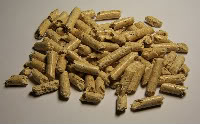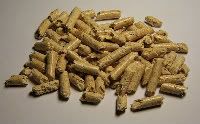Biomass in the News


The federal government abandoned algae-based biofuels in the mid-1990s, but seems to have come around on the issue. The Department of Defense recently gave Solazyme several multi-million dollar contracts to supply jet fuel. Solazyme grows algae in the dark, feeding it with a variety of biomass stocks, and converting the sugars to oil.
The company claims that this process is 1000 times more efficient than growing algae in sunlight. But isn’t it hard to really fall in love with renewable energy technologies that wind up burning hydrocarbons? If we’re going to do this, isn’t it better to concentrate our efforts on technologies like solar, wind, geothermal, etc. that don’t involve carbon emissions? I really don’t see where the passion for biomass comes from.

There is nothing inherently bad about carbon emissions if they are part of a balanced carbon cycle. We emit CO2 every time we exhale. The problem comes from digging up millions of years of carbon accumulations and spewing them into the atmosphere. We don’t have to choose between biomass and wind, etc. We need to do them all to make the amounts of energy we have become addicted to.
Tom, you are so right-on.
If we could find enough places without desert tortises, desert foxes, and other critters that would be disrupted by solar installations, we could wallpaper the planet with photovoltaics. As it is, we need a variety of energy alternatives, each suited specifically to the geographic area and population it serves.
Burning a renewable organic does not increase CO2 in the atmosphere. It is a steady state cycle with equal inputs and outputs to the system. Burning fossil fuels in open ended and can only increase the CO2. LL
I like the Chinese Biomass player $APWR for Biomass and Wind Play in China
Hi, why is solid fuel picture, like wood pellets, doing in the biofuel article? i may be litle slow to understand the relevance here?